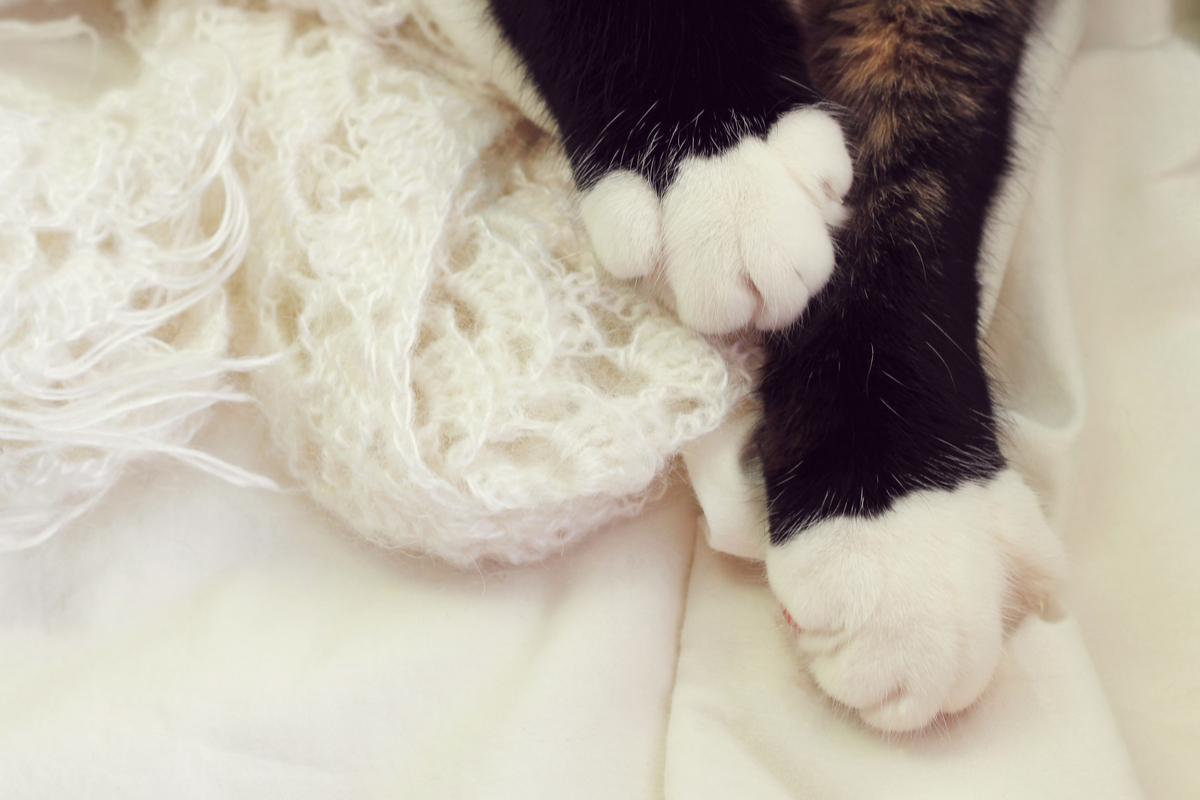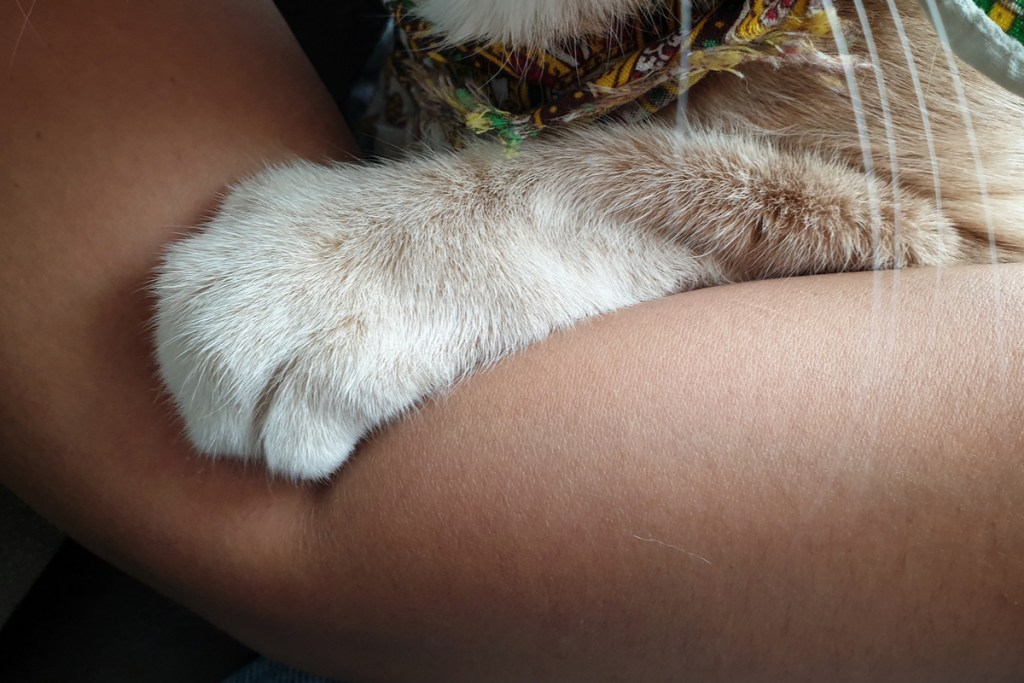You’ve just sat down on the couch and your cat has climbed into your lap. Instead of curling up and settling down for a nap, though, your cat proceeds to knead you, his claws poking into your skin again and again. Kneading is a natural behavior for cats, but it can be pretty uncomfortable when your cat decides that your lap is the best place to knead. Some cats can also get quite enthusiastic with this behavior, making the experience a painful one for you. If you’re wondering, “Why do cats knead me?” then you’re in luck. Two experts have shared their insights about this feline behavior and the causes behind it.

What is kneading, and why do cats do it?
Dr. Sharon Campbell, D.V.M., M.S., DACVIM, medical lead & behavior at Zoetis Petcare, explains that kneading resembles the motion that a human makes when kneading dough. The behavior is sometimes called “making biscuits.”
“It’s the rhythmic motion cats make with their paws, alternating between left and right, typically on soft objects like blankets, pillows, your belly, and even other pets,” says Campbell.
Cats have many potential reasons for kneading, but Campbell says the most prevalent theory relates to the cat’s time as a kitten. “Nursing kittens knead their mother’s belly to stimulate milk production and flow from the teats. It’s thought that kittens carry this action into adulthood with positive associations of their comfort when nursing,” she says.
There are plenty of other theories, too. One of them is that cats knead to create a warm, cozy bed. “The wild ancestors of today’s house cats would knead to pat down grass and other vegetation, making a soft spot for resting or giving birth,” explains Campbell.
Cats may also knead to mark their territory. Because cats have scent glands in their paws, kneading releases those pheromones. That allows cats to mark their territory and communicate with other cats who are in the area.
According to Campbell, cats may also knead to indicate their mating status: “Females may use kneading when in heat to attract males for mating.”
The act of kneading can provide valuable physical benefits, too. “Cats need to stretch their muscles,” says Campbell. “This is one reason they scratch high up on trees or scratching posts. Kneading is another way they keep those important leg and paw muscles limber.”
Lambert Wang, co-founder and vice president of product development at Cat Person, notes that while cats knead for many reasons, if a cat is kneading you, he’s most likely returning affection. “You might notice that your cat kneads when they are content as you pet them — your feline friend wants you to feel the love, too!” says Wang.

How should you respond if a cat kneads you?
So, what should you do if your cat climbs into your lap and starts making biscuits? “Though it can be painful when their sharp claws dig in with every knead, you should never chastise your cat for this behavior,” says Wang. “It’s completely natural and they have no way of knowing that this sign of affection can hurt. Instead, try placing thick, soft barriers between you and your cat, be it a blanket or a cushion. You can also try trimming your cat’s nails and keeping them maintained.”
Remember, your cat’s kneading is a way to show you affection. Even though it might smart a little, try to take it as a compliment: Your cat is doing this because he loves you, he’s comfortable with you, and he’s happy to be sitting in your lap.
When you understand the causes behind your cat’s kneading, you can better appreciate what he is trying to accomplish with the behavior. Regular nail trims can help prevent any damage your cat might cause by kneading, making the process more comfortable for you and also keeping him from getting a nail snagged in your blankets. If you’re not yet familiar with how to trim your cat’s nails, ask your vet to show you, then get into the habit of doing this regularly at home. When your cat does knead, remember that he’s showing you how much he loves you. You might choose to put up with a little discomfort in the name of cat love!


